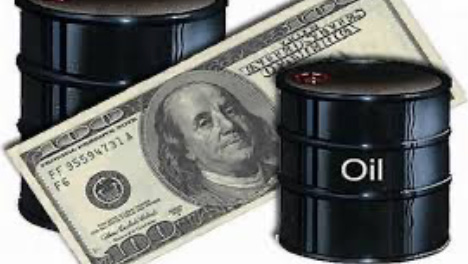The term “petrodollar” refers to a system where the US dollar is used as the primary currency for international oil transactions. Get it, the UD Dollar and oil or petrol. This system emerged in the 1970s, following the agreement between the US and Saudi Arabia, whereby the US would provide military protection for Saudi Arabia and other Gulf states in exchange for the Gulf states agreeing to price their oil exports in US dollars.
The petrodollar system was a brilliant move and has several important implications. First, it increases global demand for US dollars, as countries must hold dollars in order to purchase oil on the international market. This has helped to maintain the value of the US dollar and to make it the world’s dominant reserve currency.
Second, the petrodollar system gives the US significant geopolitical influence, as it provides the US with leverage over countries that are heavily reliant on oil imports. For example, the US can use its influence over the global oil market to put pressure on countries that it sees as hostile or non-compliant. This has stronghold with these countries begun to weaken over the last decade.
However, the petrodollar system is not without its drawbacks. It can create instability in global oil markets, as countries are exposed to fluctuations in the value of the US dollar. It can also lead to tensions between the US and other countries, as some may see the US’s use of the petrodollar system as a way of exerting undue influence over the global economy. Russia recently has moved to partner with China to weaking this and formed the Bricks, (Brazil, Russia, India, China, and South Africa) and a strong geopolitical block of countries.
The petrodollar system has been a crucial component of the global economy for over five decades, but there are concerns about its long-term sustainability. One potential threat to the petrodollar system is the rise of alternative energy sources, such as renewables, which could reduce global demand for oil and diminish the importance of the petrodollar system. Additionally, some countries have started to bypass the petrodollar system by engaging in direct currency swaps or using other currencies, such as the Chinese yuan or the euro, to price their oil exports. These actions could weaken the dominance of the US dollar in global oil transactions and potentially erode the petrodollar system.
Furthermore, the use of the petrodollar system has led to the accumulation of large amounts of US debt by oil-producing countries, such as Saudi Arabia, which hold massive amounts of US Treasuries as a result of the system. If these countries were to suddenly sell off their US Treasuries, it could lead to a major global economic shock and severely impact the stability of the US dollar.
Without question some countries are looking to remove or replace the petrodollar to level the playing field. The dollar has had a long run and taken every advantage it has been provided due to the petrodollar. The only certainty is that nothing lasts forever.
